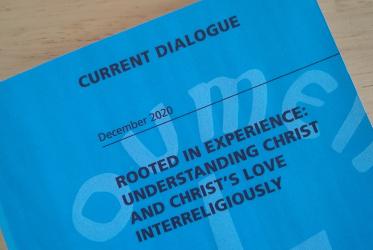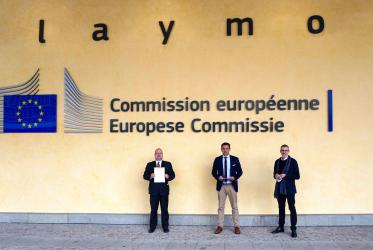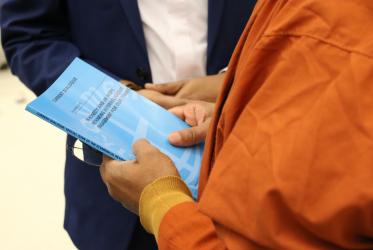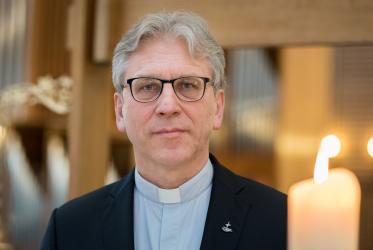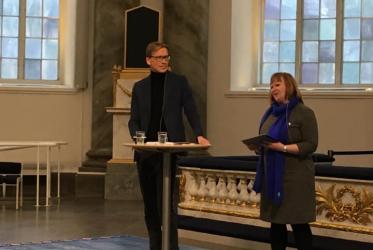Displaying 1 - 20 of 69
WCC interreligious journal focuses on “healing wounded memories”
16 February 2023
Ecumenical statement on migration received by European Commission
25 September 2020
Festivities and dialogue launch new WCC journal
07 February 2020
WCC condemns attack at Hanukkah celebration in New York City
29 December 2019
WCC mourns passing of Prof. Vuyani Vellem
09 December 2019
Peace is common denominator of all major religions
05 March 2019
Ecumenism is a sense of belonging
08 February 2019
Human fraternity is a divine calling, says WCC general secretary
03 February 2019




